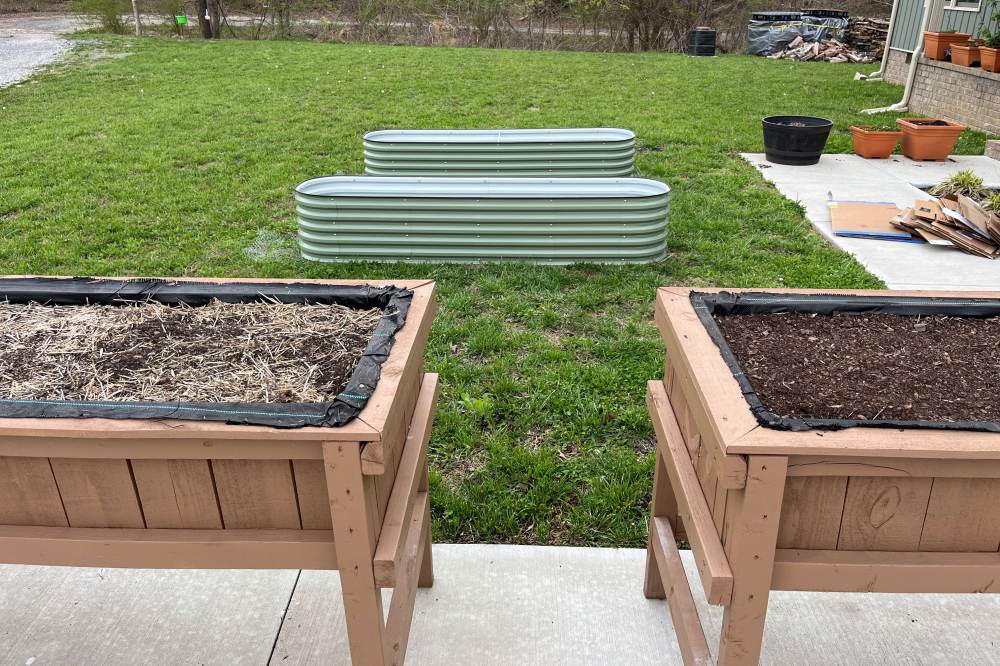Does Mulch Attract Flies? Data-Driven Analysis
By Jeffrey Heminger
Author bio: Jeffrey Heminger is a passionate gardening enthusiast with a green thumb and a love for creating beautiful outdoor spaces. Owner of MulchandStone. With years of experience, he shares his expertise and inspires others to connect with nature through sustainable practices. Jeff's commitment to nurturing plants and his dedication to helping fellow gardening enthusiasts make him a trusted source of guidance and inspiration.
Mulch is a common gardening and landscaping material used for various purposes. However, a prevalent question among gardeners and homeowners is whether mulch attracts flies. Understanding this relationship is essential for maintaining a clean and pleasant outdoor space. In this article, we will explore the topic of mulch and its potential connection to flies, debunking any misconceptions along the way.

What is Mulch?
Mulch refers to any material applied to the soil surface around plants to provide a range of benefits. It can be organic, such as wood chips, straw, or compost, or inorganic, such as rubber or stones. The primary purpose of mulching is to improve soil health and plant growth by conserving moisture, regulating temperature, suppressing weeds, and enhancing soil fertility.
So now the question is Does Mulch Attract Flies? The answer is Yes, mulch can attract flies. Flies are attracted to the decaying organic matter and moisture found in mulch beds. To minimize fly attraction, use properly aged mulch, maintain appropriate thickness, monitor moisture levels, turn and aerate the mulch, consider alternative mulch types, and keep the surrounding area clean. These practices will help reduce fly populations and maintain the benefits of mulch in your garden.
Understanding Flies
Before delving into the relationship between mulch and flies, it is important to have a general understanding of flies themselves. Flies are insects belonging to the order Diptera and are characterized by a single pair of wings. They play significant roles in various ecosystems, including pollination and decomposition. Common fly species encountered by homeowners include house flies, fruit flies, and blow flies.
Flies are attracted to specific conditions that provide them with food sources, breeding sites, and favorable odors. Factors such as decaying organic matter, garbage, and certain types of smells can be enticing to flies and contribute to their presence in an area.

The Fly-Mulch Connection
There is a common belief that mulch attracts flies, which may lead to concerns for gardeners and homeowners. While this perception exists, it is important to analyze the factors that contribute to it. Mulch itself does not directly attract flies; instead, specific conditions often associated with mulch, such as decaying organic matter or excessive moisture content, attract them.
Researchers have conducted scientific studies to examine the relationship between mulch and flies.
These studies consistently reveal that flies primarily gravitate towards the organic matter in decomposition, not the mulch material. Naturally, flies flock to areas offering suitable breeding and feeding opportunities.
Debunking the Myth
It is crucial to debunk the myth that mulch alone attracts flies. Mulch serves as a beneficial addition to garden beds and landscaping, providing numerous advantages for plant health. However, it is the decaying organic matter, which can be found under or within the mulch, that attracts flies. Mulch, when properly maintained, does not inherently create an environment that invites flies. The key lies in addressing the conditions that may attract flies, such as promptly removing decaying material or adjusting moisture levels.
Fly Prevention and Control
To maintain a fly-free outdoor space, it is important to implement effective prevention and control measures. Some practical tips include proper waste management, such as sealing garbage cans tightly and removing pet waste regularly. Regularly inspecting and removing decaying material, both under and around the mulch, can also help minimize fly attraction. Maintaining cleanliness in the garden or outdoor spaces, such as promptly cleaning up spills or fallen fruits, is crucial.
In addition to these measures, other fly control methods can be employed. Using insect repellents can provide temporary relief from flies, while traps can help capture and control their population. It is important to choose environmentally friendly options and follow the instructions carefully.
Conclusion
Mulch itself does not attract flies. Decaying organic matter naturally attracts flies, and their presence may increase if such matter exists under or within the mulch. This understanding enables gardeners and homeowners to debunk the myth, focusing instead on maintaining the mulch properly to reduce fly attraction.
Gardeners and homeowners can implement practical fly prevention and control measures like proper waste management and cleanliness, maintaining an outdoor space free of flies. Keep in mind, properly cared-for mulch benefits plants and soil health and can be enjoyed without attracting flies. Also read: What to choose the organic mulch for your raised garden bed.

FAQs
Q1: Can I use mulch in my raised garden bed?
Yes, you can use mulch in your raised garden bed. Mulch provides several benefits, such as moisture retention and weed control, which are advantageous for any type of garden bed, including raised beds.
Q2: Will mulch attract flies to my metal raised garden beds?
Mulch itself does not attract flies, regardless of the type of garden bed. Flies are primarily attracted to decaying organic matter and specific conditions that favor their breeding and feeding. Proper maintenance of your metal raised garden beds, such as removing decaying material and practicing good cleanliness, can help minimize fly attraction.
Q3: What are the advantages of using metal raised beds in the garden?
Metal raised beds offer several advantages. They are durable, long-lasting, and resistant to rotting, unlike some other materials used for raised beds. Metal beds also provide excellent drainage, can help warm the soil faster in spring, and can be an aesthetically pleasing addition to your garden.
Q4: Should I use mulch in my garden bed if I have a metal raised bed?
Yes, you can still use mulch in your garden bed, even if it is made of metal. Mulch provides numerous benefits, such as regulating soil temperature, reducing moisture loss, and preventing weed growth. These advantages apply to all types of garden beds, including metal raised beds.
Q5: How should I maintain my metal raised bed to prevent flies?
Proper maintenance of your metal raised bed is essential to minimize fly attraction. Regularly remove any decaying organic matter, such as fallen leaves or plant debris, from the bed. Ensure good cleanliness by promptly cleaning up spills or removing any rotten fruits or vegetables. By following these practices, you can help prevent flies from being attracted to your garden bed.
Q6: How do I use a mulch calculator?
Using a mulch calculator is a straightforward process. First, measure the length and width of the area you plan to mulch, such as a garden bed or landscaping area. Enter these measurements into the mulch calculator. Next, determine the desired depth of mulch you want to apply. Common depths range from 2 to 4 inches.
Enter the depth measurement into the calculator. Finally, click on the calculate button, and the mulch calculator will provide you with the amount of mulch in cubic feet or cubic yards needed to cover the specified area. This information will help you determine how much mulch to purchase for your project, ensuring you have the right quantity for effective coverage.
Q7: Can I use insect repellents in my metal raised garden beds to control flies?
Yes, you can use insect repellents in and around your metal raised garden beds to help control flies. However, it's important to choose repellents that are safe for use around plants and follow the instructions provided. Consider using environmentally friendly options to minimize any potential harm to your garden or the surrounding environment.
Q8: Are metal raised beds more prone to attracting flies compared to other types of garden beds?
No, the material of the raised bed itself does not significantly impact fly attraction. Flies are primarily drawn to conditions such as decaying organic matter, moisture, and food sources. By properly maintaining your metal raised bed and implementing effective fly prevention strategies, you can minimize the likelihood of attracting flies, just like with any other type of garden bed.
Q9: How can I keep my metal raised bed clean and free from fly-attracting conditions?
To keep your metal raised bed clean and free from conditions that attract flies, regularly inspect the bed for any decaying material and promptly remove it. Ensure good sanitation practices, such as cleaning up fallen fruits or vegetables and properly disposing of organic waste. By maintaining cleanliness and removing potential fly attractants, you can help create an environment that discourages flies from being attracted to your metal raised bed.




